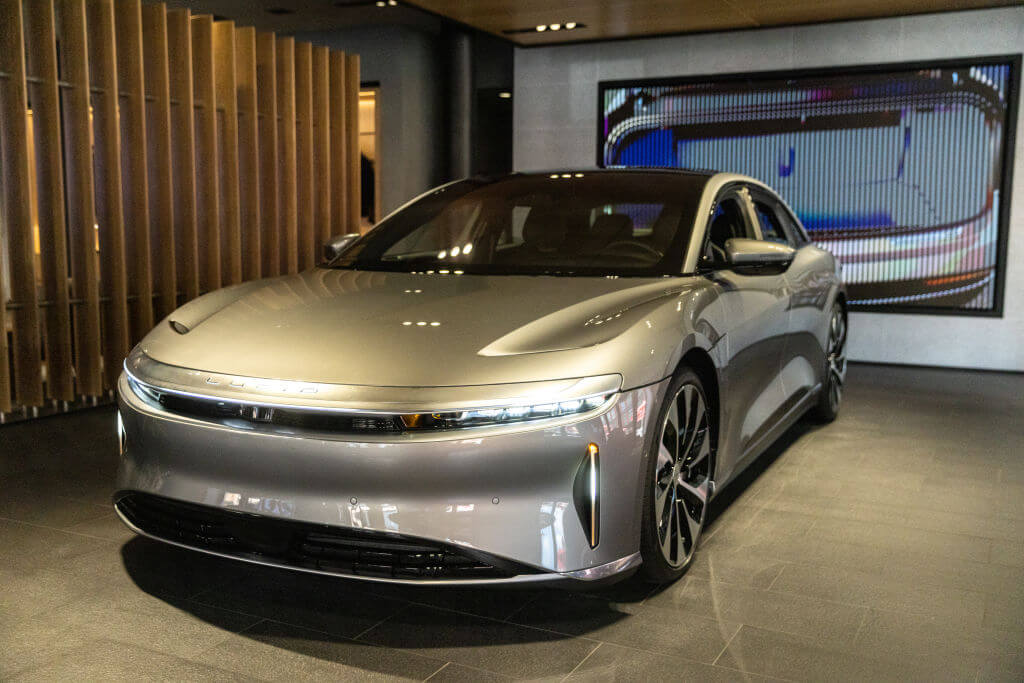
Image credit: PIF
Fisker Inc. filed for bankruptcy on Monday, becoming the latest electric-vehicle startup to succumb to financing difficulties, sluggish sales and supply chain and distribution challenges.
Demand for Fisker’s flagship electric SUV, the Ocean, is sluggish.
The company has cut jobs and suspended investments to rein in its cash burn, partnered with dealers to boost sales and desperately sought investment from major automakers to stay afloat.
Other U.S. electric vehicle startups are racing to develop cheaper models to lower manufacturing costs, cut jobs and weather a drop in demand caused by rising borrowing costs.
Lucid Group
Lucid Group said in May it would cut its U.S. workforce by 6% after six consecutive quarters of sales that fell short of analysts’ expectations.
The company has significantly reduced the price of the Lucid Air Pure and is offering two years of free scheduled maintenance and charging services as an incentive.
Lucid in November unveiled the Gravity SUV, which will sell for under $80,000 and is due to start production later this year.
To reach a larger customer base, Lucid Saudi Arabia’s Public Investment Fund plans to start producing a more affordable mid-size car in the second half of 2026, with a price range of around $50,000.
Lucid ended the first quarter with cash and cash equivalents of $2.17 billion, down from $1.37 billion in the fourth quarter last year.
Rivian
Rivian shut down its assembly lines for several weeks this year to retool its factories, a move aimed at cutting costs and helping the maker of the R1S SUV and R1T pickup truck turn a profit.
To spur demand and increase efficiency, Rivian recently unveiled a second-generation vehicle with new drive units, upgraded software and fewer parts.
Rivian refrained from lowering vehicle prices last year, but in February introduced lower-priced options for existing models.
The startup is focusing on reducing its cash burn by renegotiating supply contracts and making some parts in-house. Rivian posted cash and cash equivalents of $5.98 billion in the first quarter, up from $7.86 billion in the fourth quarter.
Rivian also unveiled a smaller, cheaper electric SUV, the R2, and crossover, the R3, in March and plans to start producing the R2 at an existing U.S. factory for faster deliveries in the first half of 2026.
Nicola
Nikola is pivoting to hydrogen-powered heavy-duty trucks after some of its battery-electric trucks caught fire in August, forcing a recall.
The company expects truck sales to reach up to $170 million in 2024 and is targeting sales of 450 vehicles this year, including hydrogen fuel cell electric trucks.
Nikola ended the first quarter with cash and cash equivalents of $345.6 million, down from $464.7 million in December.
Read: PIF-backed Lucid cuts US workforce as EV demand weakens

